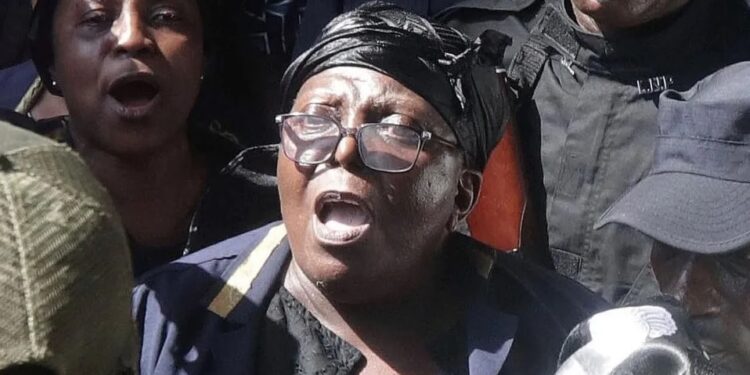By John Ikani
Liberia’s once-revered former chief justice and justice minister, Gloria Maya Musu-Scott, has been sentenced to life in prison for the brutal murder of her niece.
A prominent figure in Liberian politics and law, Musu-Scott, 70, now resides behind bars, earnestly seeking to challenge the ruling through an appeal.
The conviction stems from a jury finding Musu-Scott guilty in the murder case of her 29-year-old niece, Charloe Musu.
The trial unveiled a disturbing narrative involving Musu-Scott and three other women who were accused of deliberately causing severe bodily harm to the victim at her home last June.
The wounds inflicted, including chest, right hand, left thigh, and left armpit injuries from a sharp object, presumably a knife, were detailed in the indictment.
Maintaining her innocence, Musu-Scott contended that her niece fell victim to an unknown assailant who entered her Monrovia home.
Her arrest sent shockwaves through Liberia, and the trial’s high-profile nature garnered significant attention, especially with the looming presidential election in December.
Musu-Scott, a key member of President-elect Joseph Boakai’s political party, played a pivotal role in challenging the election commission’s stance on revealing the voters’ roll.
READ ALSO: Israeli Airstrike Kills 3 Sons, 3 Grandchildren Of Hamas Leader
The sentencing of Musu-Scott, alongside three other women aged 80, 36, and 20, left relatives, friends, and supporters in tears, according to local media reports.
Her illustrious career included serving as Liberia’s justice minister and later ascending to the position of Chief Justice of the Supreme Court until her retirement in 2003.
Transitioning to politics, she represented Maryland County in the legislature until 2012.
In 2012, she assumed the role of chairperson of the Constitutional Review Committee, contributing to Liberia’s efforts to fortify democracy after a history of authoritarian rule and conflicts.
Musu-Scott’s lawyer, Augustine Fayiah, revealed plans to appeal the conviction and sentencing, citing perceived errors in the judge’s decisions and alleging interference by justice ministry officials in the jury’s impartiality.
Last month, after the jury’s verdict, a prosecuting lawyer stated that overwhelming evidence supported the charges, expressing confidence in the correctness of the verdict.
Meanwhile, President-elect Boakai is set to be sworn in on 22 January following his victory over George Weah.




































